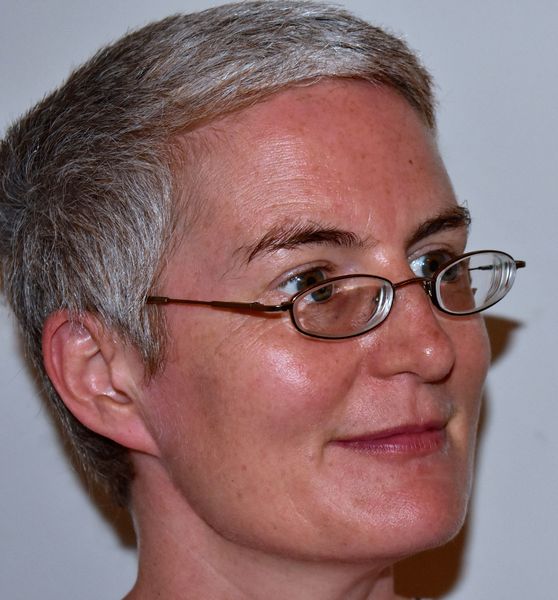Academics Who Travel Better
Academia is closely linked to extensive mobility, meaning attending non-local conferences and meetings and engaging in globalised research amongst other international engagements. It can be scary and uncomfortable to imagine a career in academia without air travel. Without the support of governments and institutions, confronting air travel can seem like a lonely road. For some, depending on capacity and other circumstances including type of research, location and career stage, a career without air travel may not be possible, just yet.
As part of the Travel Better Package, we would like to showcase academics who have, with a combination of bravery and resources, been able to confront their flying. The Travel Better Pledge Template recommends publicising successes in avoiding or reducing air travel. We also recommend mentioning how we are able avoid or reduce flying to not shame individuals who may not be able to make the same changes just yet. These conversations follow this recommendation.
Academics Who Travel Better: Dr. Elspeth Jajdelska
Dr. Elspeth Jajdelska is a senior lecturer in English at the University of Strathclyde in Glasgow. I came across Dr. Jajdeska when looking through the names of academics who have signed the Academic Flying Petition started by Dr. Joseph Nevins and Dr. Parke Wilde.
Through email correspondence, Dr. Jajdelska answered a few questions about her journey in confronting air travel as an academic. Here is our conversation:
Why did you decide to sign the petition? Why did you begin to consider your air travel?
Like most people I have been well aware of the climate crisis for some time, but unreflectingly assumed that changing behaviour around flights (including my own) would only be possible through governmental action.
However, when one of my children joined the school climate strikes and told me about Greta Thunberg deciding not to fly at all, I looked at the issue more carefully and realised that there is no reason to treat flying as an unexamined part of my carbon footprint, in contrast to eg. reducing plastic use. In particular, reading around the issue made me more aware that reducing flights could, in concert with others doing the same thing, have an effect on our moral and behavioural norms around flying, as well as reducing the carbon involved in my individual flights.
I'm concerned by the carbon impacts of flight, and also the more general environmental impacts (noise, green spaces etc). I've been aware of those for some time, and have not flown within the UK for many years for that reason. It was flights for longer distance that I hadn't really considered as something that I could reduce or avoid altogether. I came across the petition when I was looking for links to put in an email to colleagues around the time of the global climate strike on things they could do (eg. sign the petition for the University of Strathclyde to decarbonise its investments etc).
How are you able to reduce/eliminate air travel as an academic?
I'm fortunate in that I am not on a fixed term contract. Staff without permanent jobs are much more likely to feel the pressure to get out and network as they pursue a stable job. I'm also lucky, I think, in that I can carry on successfully in my profession without conferences; my research topics are directed by my own interests, they are quite idiosyncratic and they don't really map very well on to the standard conference circuits, so I have less motivation than most to go to conferences.
Also, living in the UK, I'm within 5 hours train journey of a wide range of cities and universities, including London, so I can go to useful academic events without flying pretty easily. Once I thought about it, I really couldn't see any genuine intellectual justification for flying for work. I think we've grown accustomed to the language of business around academic conferences eg 'forming networks'. The emphasis on networking is supposed to encourage greater academic cooperation and collaboration, but for all we know, it may be creating in-groups instead; I'm not sure if there's any evidence either way. But I can also see that in disciplines that require extensive collaboration, conferences might be a good way to identify collaborators, so I'm privileged in the sense of being able to research on my own or with colleagues nearby.
My children's involvement in the climate strike movement was a big prompt to reflection, as was the IPCC report couple of years back.
What do you hope to see in the future regarding air travel and the HE sector?
How can the government and other institutions help you in your mission to stop flying?We urgently need carbon taxes, and to reverse any exemptions on fuel duty that airlines enjoy. But I think we also need a coherent programme across governments to prioritise zero carbon outputs, so that eg. policies that lead to unemployment in air industries are offset by government led investment in green growth instead, ideally in the areas where job losses from carbon reduction will be highest.
On the sector, I'd like to see subject organisations choosing to have fewer conferences, and especially fewer international conferences. I'm not a big fan of Skype presentations, but I do think there's a lot of scope for simply forming dispersed groups of readers who read and comment on one another's work by text, either in real time through online messaging or using email. I think universities could encourage staff to consider whether some of the budget they currently use to fly to conferences might not be reallocated eg. to spending time on a library retreat closer to home, or hiring a research assistant.
This blog was written in January 2020.











